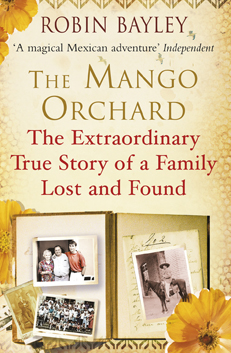Poole Central Library, where I have been invited to give a talk about The Mango Orchard, is sandwiched between a KFC and a Primark store, and housed in a concrete shopping centre. Inside, I am pleased to see, it is light and airy. In addition to the regular librarians – including the charming Jenny Oliver who has organised the event – there is an army of green sash-wearing volunteers welcoming people and directing them towards the drinks and refreshments.
Two volunteers heave the books I have brought with me on to a table. I feel a bit like a travelling salesman arriving at an event with a boxful of books. It’s always difficult to know how many to bring. I once travelled six hours to an event in Halifax and sold not one. I have a good feeling about Poole, though.
I am given a very generous introduction by the former mayor, Judy Butt. She is now an executive counsellor with one of the best titles I have ever come across. She is (deep breath) Cabinet Portfolio Holder for Leisure, Sport & Recreation, Culture, Libraries & Community, Learning Public, Engagement and Participation for the Borough of Poole.
The talk goes well and the questions are intelligent and thoughtful. Among the people who put their hands up are a former priest who worked in Mexico, and asks his questions in Spanish, a couple whose daughter is planning her own Latin American adventure, and a woman whose Indonesian grandmother had killed her grandfather with black magic.

“We sold all the books,” the volunteers tell me sadly as they hand me a brown envelope stuffed with cash. “Shame you didn’t bring more.”
From Poole I head to Plymouth, approximately 100 miles away. It takes over five hours. I calculate (I have run out of reading material) that Robert Stephenson’s Rocket would have gone to Plymouth and be half way back by the time we get there. I am joined, between Yetminster and Dorchester, by a group of students. They look a thoughtful, intellectual bunch. They sit down in the seats next to mine. “You know?” says one, “I had a dream last night that I could only get drunk by licking Clarissa’s knees.” The others nod and plug in their iPods.
It’s another good night in Plymouth. This time I don’t have to bring any books and a nice lady from Waterstone’s does brisk business on my behalf. And it’s back to London.
Next stop, Chicago.


















